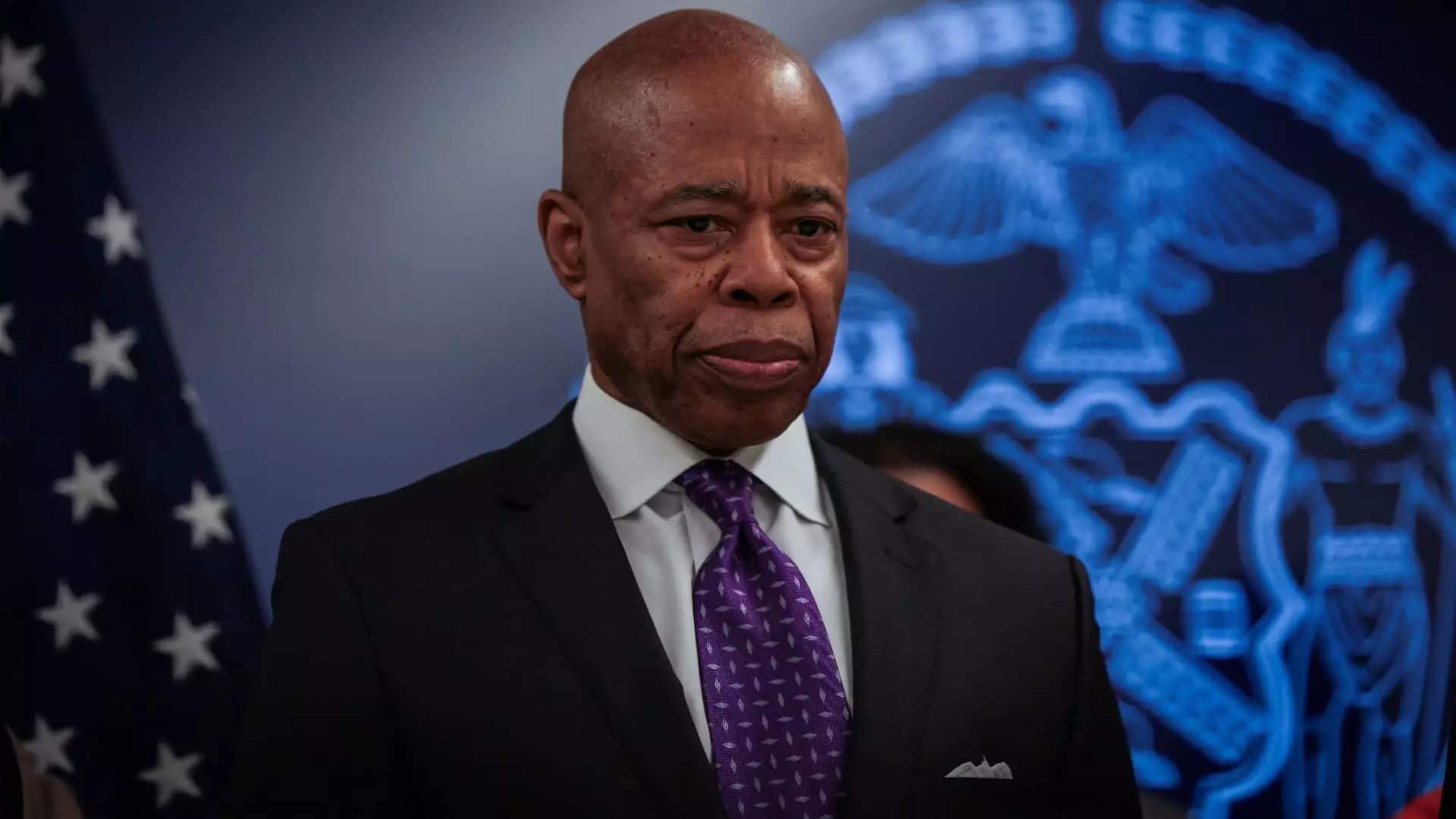In the heart of Manhattan, a political storm is brewing that could reshape the landscape of New York City’s governance. Recently, U.S. District Judge Dale Ho opted not to dismiss a corruption case against Mayor Eric Adams, temporarily delaying the process indefinitely. The unique interplay of political affiliations and legal strategies has raised eyebrows across party lines, especially as the Justice Department, under Donald Trump’s appointee, seeks to intervene in a case that many perceive as embroiled in a complex web of political intrigue.
Judge Ho’s ruling, delivered on a seemingly ordinary Friday, was anything but routine. He appointed an external lawyer, Paul Clement, to present arguments against the Justice Department’s request to dismiss the charges against Adams, indicating that the judge seeks more than just a procedural resolution. The request for dismissal brought forth by the Justice Department came in mid-February, prompting significant turmoil within the Department as several prosecutors resigned rather than comply with Acting Deputy Attorney General Emil Bove’s order to seek dismissal. Their resignations highlight not just a concern for ethical considerations, but also a fracture within the justice system over political influence.
The charges against Mayor Adams, filed last September, allege that he accepted bribes and campaign donations from Turkish nationals attempting to gain influence in the mayor’s office. Adams, who is navigating the complexities of an upcoming re-election campaign, has publicly asserted his innocence, claiming that the charges stem from political retaliation due to his outspoken criticism of the Biden administration’s immigration policies.
The unfolding events have set the stage for a significant political crisis in New York City. Critics of the dismissal push argue that if the charges are dropped, Adams would not only evade accountability but might also become beholden to the Trump administration. Allegations of a political quid pro quo have surfaced, suggesting that Adams may be expected to align with Trump’s rigorous immigration policies in exchange for support in his legal battles. Adams has categorically denied these insinuations, yet the persistent rumors contribute to a charged political atmosphere.
The deterioration of trust within the political establishment can be seen in the reactions from prominent Democratic figures, who have called for Adams’s resignation in light of this turmoil. New York state Governor Kathy Hochul’s reluctance to invoke her powers to remove Adam adds another layer of complexity, suggesting a division among leadership on how best to address the crisis—a concern bolstered by recent announcements of resignations from several of Adams’s deputies.
Bove’s directive to seek dismissal of the charges has raised critical questions about executive intervention within judicial proceedings and the extent of the Justice Department’s power. While he claims that the dismissal is in the public interest, the invocation of political rationale stands in stark contrast to the perceived pursuit of justice. This maneuver raises alarms about precedents that might affect future legal proceedings, posing a threat to the independence of judicial processes.
As the case unfolds, the complexities of prosecutorial dynamics within the Justice Department become increasingly evident. The fallout from Bove’s directive reverberates beyond just the legal realm and into the judgment, credibility, and future collaborations between state and federal authorities.
As the trial pauses indefinitely, it is crucial to consider the implications this case holds for New York City’s political framework, as well as for governance practices across the United States. The intersection of law and politics reveals challenges that could deter public trust in both political leaders and the legal system at large. The ramifications of this situation may not only affect Mayor Adams’s re-election bid but could also serve as a cautionary tale about the extent to which political relationships influence legal outcomes.
The ongoing saga is not merely a local story; it serves as a national microcosm of the tensions that persist between politics and justice, ultimately demanding attention from citizens who deserve transparency and accountability from their leaders.


Leave a Reply